3 min read
Bon Voyage to the Ordinary: Top Ecommerce Trends for Travel Brands in 2024
The travel industry is taking flight in the digital realm. As wanderlust reigns supreme, travel brands need to equip themselves with...
4 min read
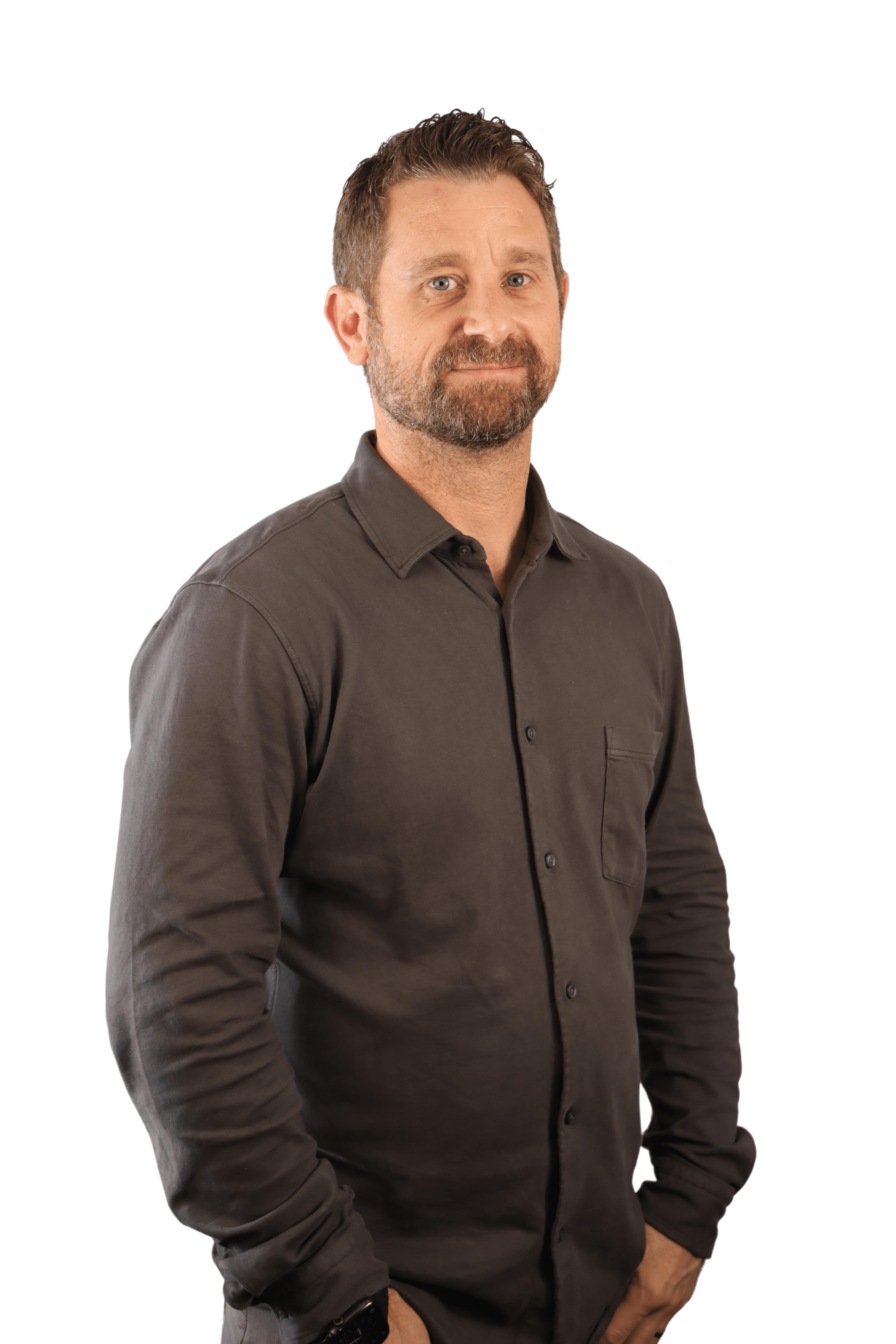 Chris Ailey
:
Nov 14, 2018 9:44:49 AM
Chris Ailey
:
Nov 14, 2018 9:44:49 AM
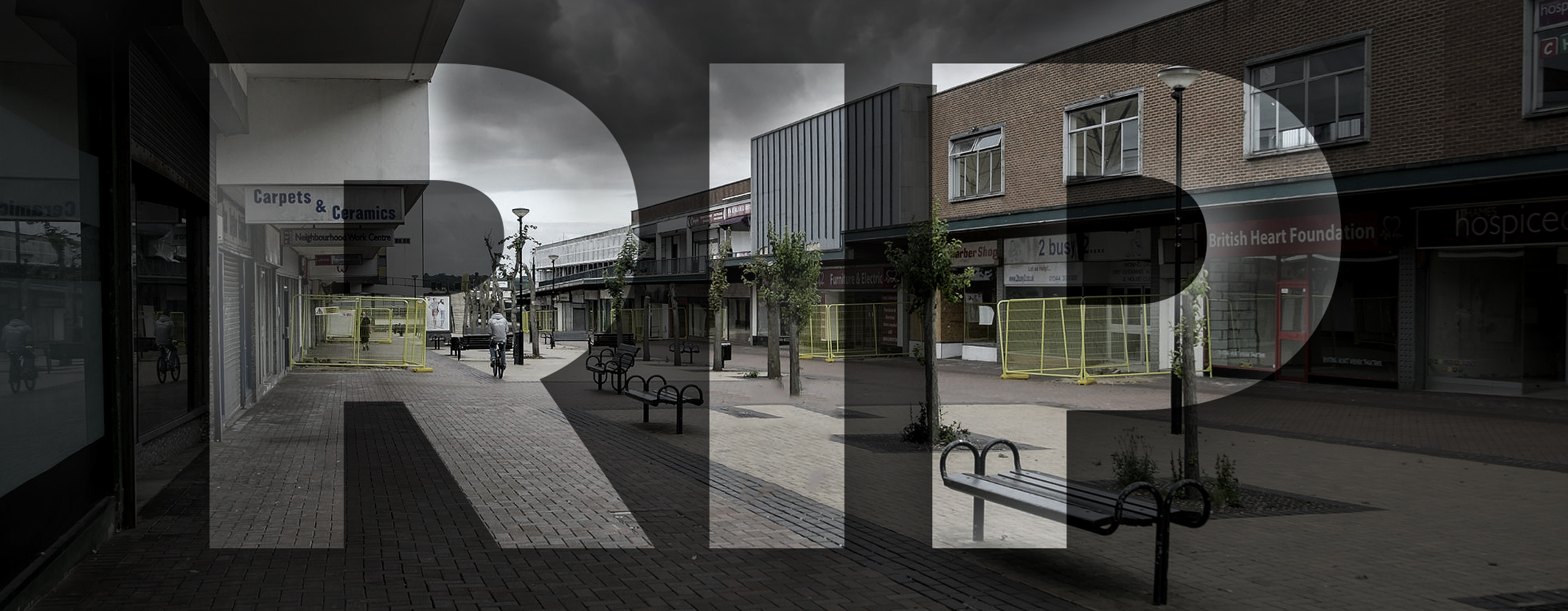
Retail is struggling, we are in a period labelled the ‘retail apocalypse’, and this isn’t going to change anytime soon. Shopping centres see shops appear, then disappear on what seems like a weekly basis; with many town centres comprising largely of hairdressers, restaurants, coffee shops and charity shops.
The internet brought a change in consumer behaviour and only those retailers that are strongest online will survive. So why are retailers still weighting their budget so heavily on paid digital channels to get them sales?
In ecommerce, SEO is too often a neglected channel and despite retailers recognising the potential of traffic from natural search, the journey to achieve it is seen as a long and expensive one. A lot of outlay before any real revenue is achieved.
An all too common theme in retail is where paid search budget is sacrificed to fund SEO activity. As a result of this, immediate orders and revenue are lost. Budget holders feel the pain and have to justify an overall lower ROI on their marketing spend to their peers.
The result is that SEO budget is cut after a few months because results aren’t coming fast enough and PPC (paid search) can get a ‘bigger bang for the buck!’.
Whilst it is now more widely understood across retail that Search Engine Optimisation is a much longer, more complicated and bigger game. It’s not unusual for board members to still expect the same instant results as PPC and the biggest challenge is managing expectations that being patient now, will bear fruit a plenty in the future.
With PPC, you can see an instant return, increase or lower spend dependant on performance and report as far down as keyword level. Instant visibility where you want it, total control over when and where you appear, and granular reporting are always going to come at a price.
Ask yourself,
SEO is designed to build an organic footprint of your brand. The reason it is so powerful is because it can make the difference between your brand and your competition. It can rival the biggest advertising budgets because it can get you top of Google with no direct cost for every visitor that clicks your link.
In 2018, online grew at ten times the rate of store sales in the first half of the year, whilst the UK’s high streets suffered 5,855 store closures in 2017.
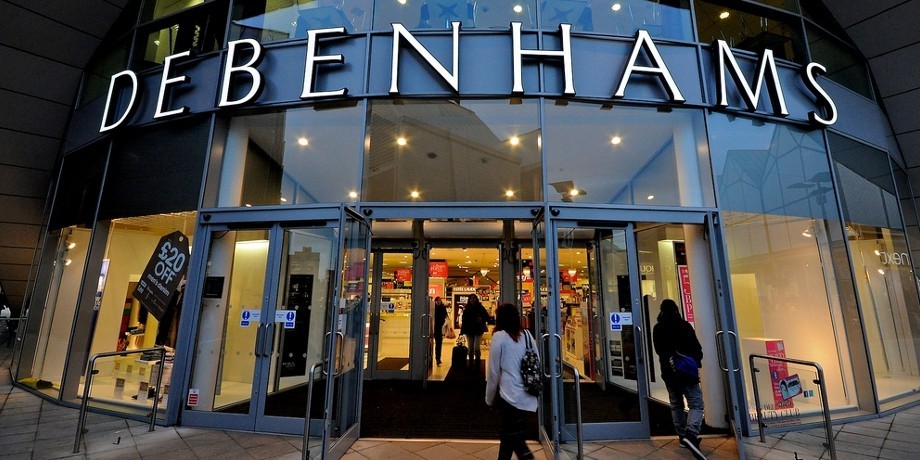
In a recent high profile case, Debenhams announced it will be closing up to 50 retail stores in a £100M cost-saving plan, a third of their high street presence. Yet, a new report from Pi Datametrics shows Debenhams is the clear leader in a Google Share of Voice Report in the fashion market.
14,000 of the most valuable keywords around fashion were analysed and Debenhams are dominating in all sub categories, meaning their organic footprint is in fact bailing them well and truly out of trouble. Take everything away and they still have a business online.
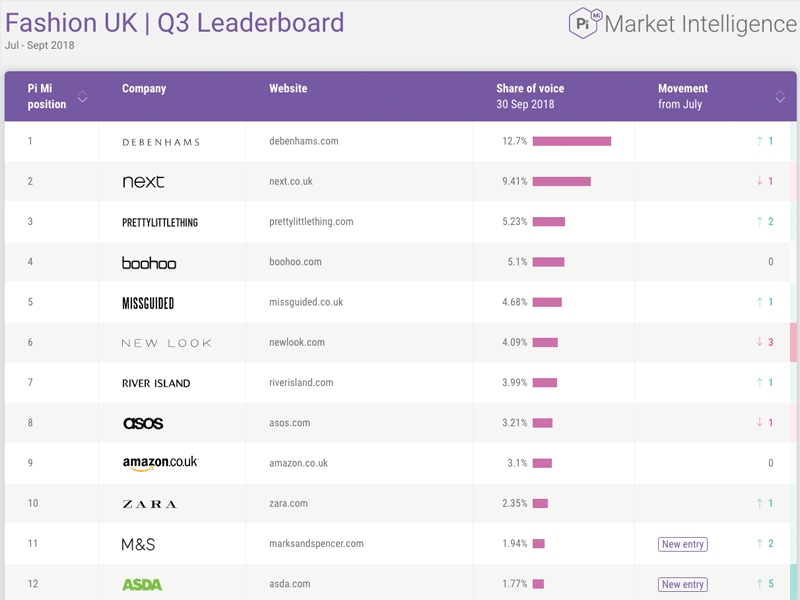
With 12.7% Debenhams’ share of voice score has a healthy lead on Next in second place at 9.41%. It’s worth noting that Boohoo owned PrettyLittleThing (5.23%) and Boohoo.com (5.1%) have a combined share of voice of 10.33% but this is still less than Debenhams.
SEO is a long term and ongoing strategy, you need to keep building site authority, gaining links and citations, producing content and making your site as user friendly as possible.
Every day you are leaving this your competition is getting stronger, because they are doing exactly that.
More can always be squeezed out of a PPC budget but with every conversion from this channel comes a cost of acquisition. SEO can drive more profitable revenue than PPC, it also gets considerably more of the Google traffic.
There are a number of sources for organic CTR from Google but as a guide position 1 is around 35%, position 2 is 15%, position 3 is 9% on desktop. The below graph is taken from one of our tools GetStat.
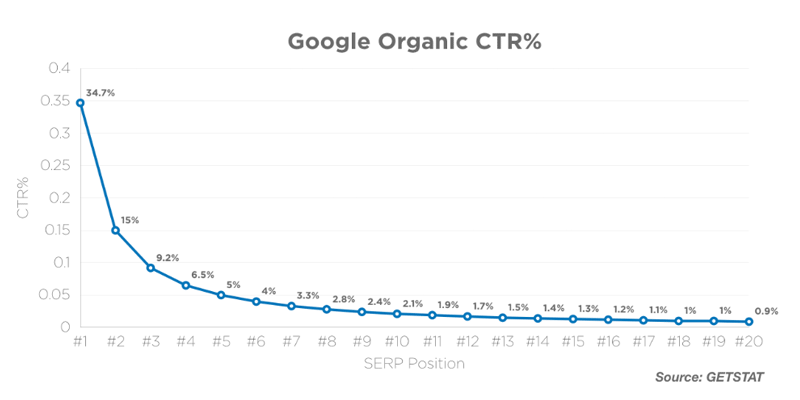
If you’re getting anywhere near 35% CTR from your paid search terms, then its only likely to be from a brand term or a long tail search term that is unique to you. A position 1-3 organic listing for your target search terms is worth every penny of investment in SEO. However, achieving this is getting harder and harder all the time.
Rand Fishkin at SparkTorro recently published an interesting article on the rise of searches not leaving the SERPs. This article shows how Google is trying to answer more and more search queries without the user leaving their site. Whilst this is very relevant for question and information based searches this is unlikely to affect commercial terms targeted by retailers.
What we can take from this article though is Rand’s chart showing how CTR has increased dramatically for Paid Ads on Google. What it also shows is that despite this increase, organic CTR is still a lot higher.
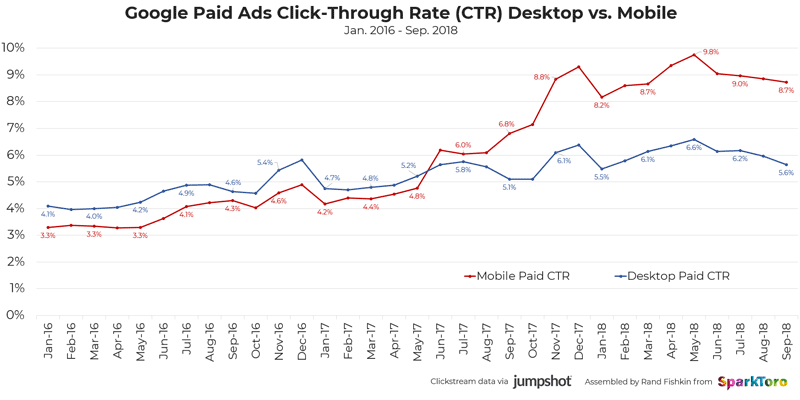
With more competition in the SERPs, the CPC’s and the cost per acquisition will only continue to increase. Will your margin increase in this time? Will delivery get cheaper? Your returns rate decrease? In a world of margins, the biggest gain you can make is a lower cost per acquisition, that’s why customer loyalty is so important.
The Search landscape is becoming more and more competitive with the number of pure play retailers increasing all the time. These new competitors have no fixed overheads like a brick and mortar presence, their entire business is built for the digital age.
Can you really afford to rely so heavily on paid search to buy your traffic and customers? With every day that you are leaving SEO, seeing it as a luxury instead of a necessity, you are falling behind your direct competition and the new competitors arriving in your space.
It’s very likely that you are using some of your paid search budget to target top of funnel search terms to create awareness. With data-driven attribution modelling you can understand what role specific keywords or phrases play in conversions, it is here that you can make savings that make the least impact in performance overall.
Moving paid search budget into SEO will affect the dynamics of your revenue for a while, but long term you will be building a more solid foundation for your business. Ultimately, should the worst happen and your marketing budget disappear, at least you will still have a business.
This post was written by Chris Ailey, the founder of iThinkMedia. Connect with Chris on LinkedIn or follow him on Twitter @chris_ailey.

3 min read
The travel industry is taking flight in the digital realm. As wanderlust reigns supreme, travel brands need to equip themselves with...

2 min read
The fashion scene is undergoing a digital makeover. With consumer habits constantly shifting, fashion brands need to adapt and embrace innovative...

2 min read
The home and garden landscape is blooming in digital. As consumer preferences evolve, home and garden businesses need to cultivate innovative...